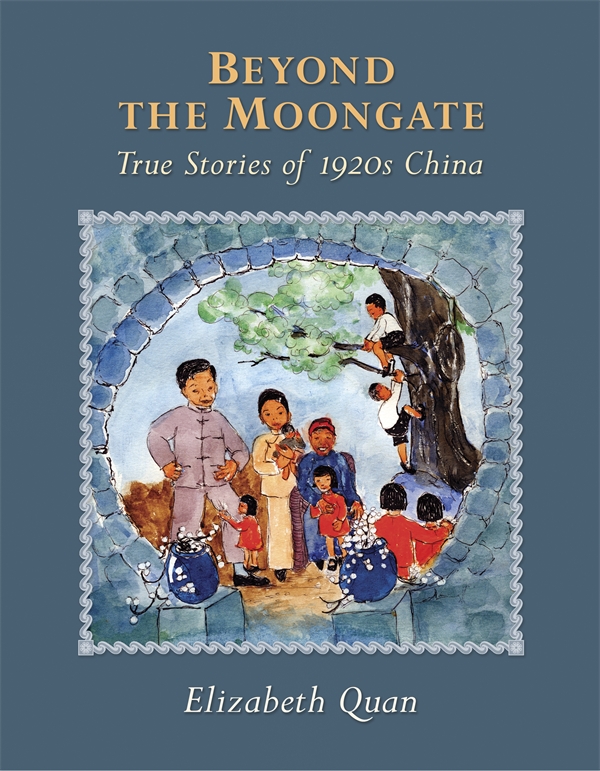17 Jun / Beyond the Moongate: True Stories of 1920s China by Elizabeth Quan

 “Moongates dotted the landscape of Old China,” the second of artist Elizabeth Quan’s two-part childhood memoir begins. “Stepping through one of these doorways was to enter a world of peace and happiness …”
“Moongates dotted the landscape of Old China,” the second of artist Elizabeth Quan’s two-part childhood memoir begins. “Stepping through one of these doorways was to enter a world of peace and happiness …”
Almost a century ago, Quan, her five siblings – “aged ten months to seven years” – together with their parents traveled “one full cycle of the moon” as depicted in Once Upon a Full Moon (2007) from their home in Canada to China. In Moongate, Quan presents the two years the family spent in her father’s ancestral southern Chinese village in 17 single-page vignettes, each accompanied by a vibrant watercolor memory; Quan’s biography notes that she “was the last protégée of Jack Pollock.” The children help raise a piglet, celebrate holidays, attend the Chinese school their father establishes, avoid pirates, and welcome a new baby brother.
At the heart of the family’s extended visit is Quan’s paternal grandmother, an “extraordinary woman” who the children call “Popo,” who begins the book with “her face lit up with joy” at the family’s arrival, and ends with her “waving bravely, tears streaming down her wrinkled brown face.” As idyllic as their stay has been, the family’s parting is especially bittersweet: they must leave two children behind – the newborn son who “could not legally be brought back to Canada,” and the youngest daughter to help their elderly grandmother care for her new grandson. While Canada’s anti-Asian immigration laws (with parallel restrictive legislation in the U.S.) are never directly mentioned, the “Afterword” reveals that the family’s reunion eight years later was made possible only with “special dispensation” via a Canadian government official.
In today’s era of ‘reverse’ immigration – new generations of Asian Pacific Americans seeking economic and cultural opportunities in their ancestral homelands, especially in China and India – Moongate provides an enthralling, contrasting view of returning ‘home,’ a century apart. Quan’s China then was “a land not yet touched by technology.” That China of “long lazy days … [is] a China forever gone.” Oh, were she to repeat the journey now …
Readers: Children
Published: 2013
